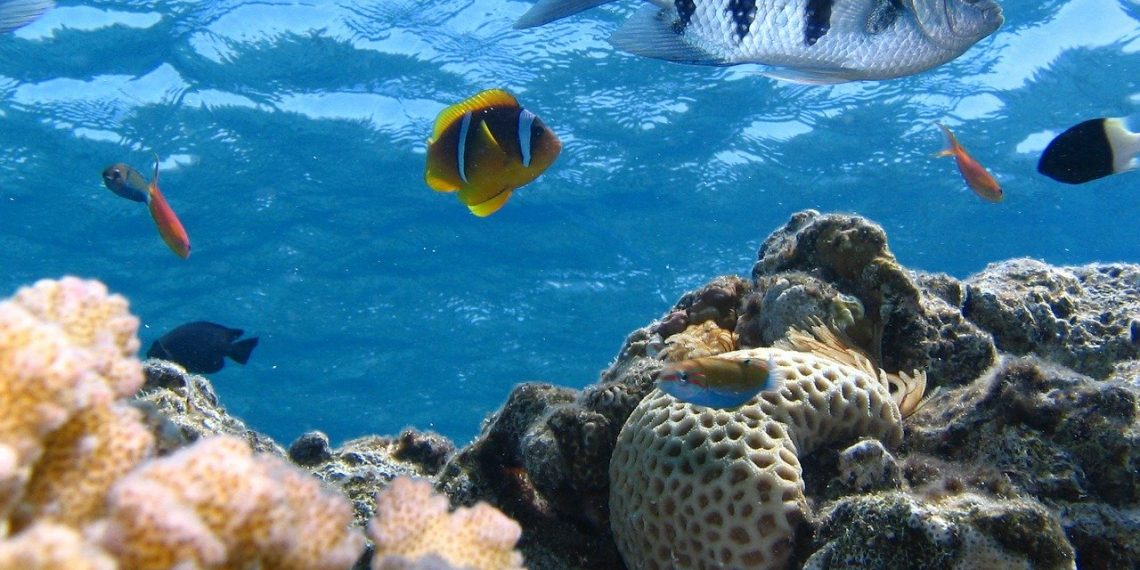As clean energy expands, demand for metals and rare earth elements is growing along with it. Developing the wind turbines, solar panels and batteries that will power our low-carbon future requires cobalt, nickel, zinc, copper, silver, gold, lithium and more.
While these materials have historically been sourced on land, there’s increasing interest in tapping into supplies found underwater, through deep-seabed mining. Yet a new Blue Paper commissioned by the High Level Panel for a Sustainable Ocean Economy finds that deep-seabed mining is a potentially risky proposition that may, in fact, be unnecessary given the rapid development of alternative technologies that reduce demand.
Deep-seabed Mining: Proceed with Caution
Deep-seabed mining has been heralded as the key for rapidly transitioning to clean energy due to a wide range of potential benefits, such as: providing a new source of metals (potentially facilitating decarbonization); providing income to states, industry and people; boosting technological innovation; releasing less CO2 than land mining; representing less burden than land mining; and requiring no permanent ocean infrastructure.
Despite this, deep-seabed mining has poorly understood environmental impacts. There are no studies to date that investigate the impacts of mining the deep sea at scales that resemble those of commercial mining land activities.
The little research that is available paints a concerning picture. Studies found that deep-seabed mining will create disturbance to life on the seafloor that can last for decades. The crushing, removal and smothering and changes to the environment can lead to loss of biodiversity and ecosystem services, and perhaps even local extinctions. Damaging ocean habitats in this way would undermine ocean sustainability and the Sustainable Development Goals.
The UN Convention on the Law of the Sea declares seafloor minerals in international waters to be the common heritage of mankind. Both the mining of these minerals and protection of the marine environment are under the jurisdiction of the International Seabed Authority (ISA). There are concerns about these conflicting ISA mandates, and the capacity to address environmental management. There are also questions about whether the benefits of exploitation will flow to developing countries as intended and achieve intergenerational equity. There’s also potential for transboundary impacts of mining sediment plumes and land-based impacts associated with delivering and processing deep-seabed minerals.
As such, our study suggests that deep-seabed mining should be approached in a precautionary and adaptive manner in order to avoid and minimize harm to habitats, communities and ecosystems. Appropriate time should be taken to develop regulations and formulate regional environmental plans. We need considerably better knowledge of the larger-scale environmental impacts as well as confirmation of the global benefit from mining activities before pursuing industrial-scale deep-seabed mining.
8 Ways to Ensure the Clean Energy Transition Proceeds, but Doesn’t Come at the Expense of the Ocean
The Blue Paper identified several opportunities to ensure that scaling up renewable energy does not come at the cost of damaging unique ocean habitats:
- Strengthen research, development and demonstration programs to scale up offshore wind, and enable other ocean-based renewable energy technologies like tidal, wave and floating solar to contribute significantly to decarbonization in later decades.
- Strengthen R&D and economic incentives to favor a less mineral-intensive global energy system, including less mineral-intensive, ocean-based renewable energy.
- Create incentives and remove barriers to implement a circular economy, which acts through improved product design; reduced demand; reuse, recycling and reclassification of materials; and use of renewable energy for production.
- Establish an international research agenda and timeline, in conjunction with the UN Decade of Ocean Science for Sustainable Development, to generate and synthesize high-quality scientific data on the deep sea. More data and analysis can help fill knowledge gaps and foster better decision-making and environmental management in advance of deep-seabed mining.
- Build the environmental regulatory capacity of the ISA to ensure the effective protection of the marine environment from the impacts of mining. Regulations must be developed in a transparent and inclusive manner.
- Improve the sustainability and efficiency of land-based mining practices to reduce demand for deep-seabed mining.
- Support marine spatial planning and sustainable ocean economy plans that stimulate investments in renewable energy supply from the ocean.
- Promote the identification, declaration and enforcement of protected areas across all ocean regions before implementing any mining activities.





